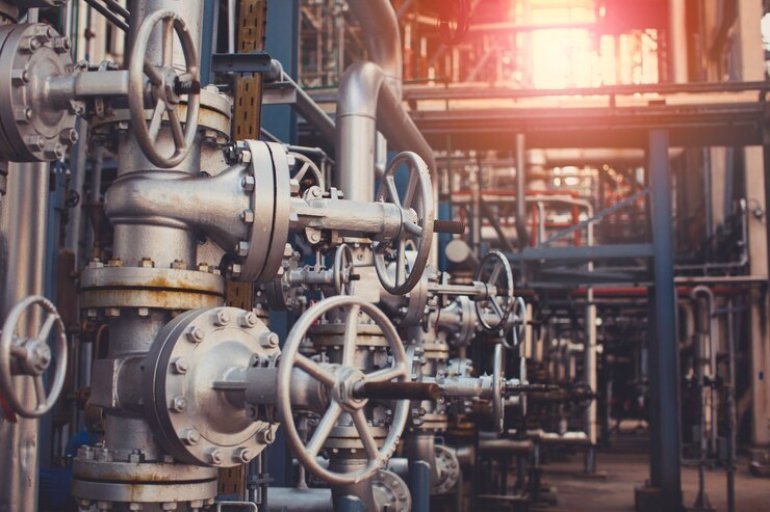The Future of Industrial Valves: Trends and Innovations

About Valves
In the grand tapestry of industrial machinery, there's one unsung hero who
quietly ensures the smooth operation of countless processes: the industrial
valve. These unassuming devices play a crucial role in regulating the flow of liquids, gases, and slurries in various industries, from oil and gas to
water treatment, chemical processing, and beyond. While valves may not
always grab the spotlight, the future holds exciting developments that
promise to revolutionize their role and functionality. In this exploration
of the future of industrial valves, we'll delve into emerging trends and
innovations poised to shape the landscape of flow control.
1. Smart Valves: The Age of Intelligence
Welcome to the era of smart everything, where connectivity and data reign
supreme. Industrial valves are no exception to this trend. In the future,
valves will increasingly incorporate sensors, actuators, and intelligent
control systems to enhance their functionality and efficiency. These smart
valves will be capable of real-time monitoring, predictive maintenance, and
adaptive control, optimizing performance while minimizing downtime and
energy consumption.
Imagine a valve that can detect fluctuations in flow rates, temperature, and
pressure, and automatically adjust its settings to maintain optimal
conditions. Through integration with Industrial Internet of Things (IIoT)
platforms, these valves will communicate with other components in the
system, enabling seamless coordination and optimization of industrial
processes. This level of intelligence not only enhances productivity but
also opens doors to new possibilities in automation and remote operation.
2. Materials and Manufacturing Advancements
As industries push the boundaries of performance and durability, the
materials and manufacturing techniques used in valve production will
continue to evolve. Advanced alloys, composites, and ceramics will replace
traditional materials, offering superior resistance to corrosion, erosion,
and wear. Additive manufacturing, commonly known as 3D printing, will enable
the creation of complex geometries and customized valve designs with
unprecedented precision.
Furthermore, advancements in nanotechnology hold promise for developing
self-healing coatings and surfaces that can repair minor damages and prolong
the lifespan of valves. These innovations not only improve reliability but
also contribute to sustainability by reducing the need for frequent
replacements and repairs.
3. Energy Efficiency and Environmental Sustainability
In an increasingly eco-conscious world, industries are under pressure to
minimize their environmental footprint. Valves play a crucial role in this
endeavor by controlling the flow of fluids and gases with maximum
efficiency. Future valve designs will prioritize energy efficiency, with
streamlined profiles, optimized flow paths, and reduced leakage rates.
Moreover, as renewable energy sources gain prominence, valves will be
tailored to meet the unique demands of these applications. Whether it's
regulating the flow of solar thermal fluids or managing the output of wind
turbines, specialized valves will play a pivotal role in harnessing clean
energy sources and integrating them into existing infrastructure.
4. Modularity and Scalability
Flexibility is the name of the game in modern industrial operations. Valves
that offer modularity and scalability will become increasingly sought after,
allowing companies to adapt quickly to changing requirements and scale their
processes efficiently. Modular valve systems will enable easy customization
and reconfiguration, reducing lead times and improving asset utilization.
Furthermore, standardized interfaces and communication protocols will
facilitate interoperability between different valve components and systems,
fostering a more interconnected industrial ecosystem. This interoperability
not only simplifies integration but also lays the groundwork for the future
adoption of distributed control and autonomous decision-making.
5. Safety and Reliability
In high-risk industries such as oil and gas, petrochemicals, and nuclear
power generation, safety is paramount. The future of industrial valves will
prioritize robustness, reliability, and fail-safe operation to ensure the
integrity of critical processes. Redundant systems, failover mechanisms, and
advanced diagnostics will be integrated into valve designs to mitigate the
risk of accidents and ensure compliance with stringent safety standards.
Moreover, digital twin technology will enable virtual simulations and
predictive modeling of valve behavior under various operating conditions,
allowing engineers to anticipate potential failures and proactively
implement preventive measures. By combining real-time monitoring with
predictive analytics, companies can minimize downtime, improve safety, and
enhance overall operational resilience.
Conclusion:
Embracing Innovation for a Fluid Future with Oswal Industries Limited. As we peer into the future of industrial valves, one thing becomes
abundantly clear: innovation is the driving force behind progress. From the
integration of smart technologies and advanced materials to a renewed focus
on sustainability and safety, the evolution of valves reflects broader
trends shaping the industrial landscape.
By embracing these innovations and staying ahead of the curve, companies can
unlock new opportunities for efficiency, reliability, and competitiveness.
Whether it's optimizing process performance, minimizing environmental
impact, or ensuring operational safety, the future of industrial valves
holds immense promise for industries worldwide.
In this journey towards a fluid future, partnering with the right valve
manufacturing company is paramount. As such, we cannot overlook the
contributions of Oswal Industries Limited. Renowned for its commitment to
quality, innovation, and customer satisfaction, Oswal Industries Limited
stands as a beacon of excellence in the realm of industrial valves. With a
rich legacy of craftsmanship and a forward-thinking approach to technology,
Oswal Industries Limited exemplifies the values of reliability, performance,
and sustainability that define the future of valve manufacturing.
As we navigate the complexities of the modern industrial world, let us
remember the humble valve—the unsung hero silently orchestrating the flow of
progress. And in the grand symphony of industry, every valve plays its part.
With Oswal Industries Limited leading the charge, the future of industrial
valves is indeed bright, promising, and filled with endless possibilities.
